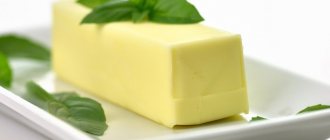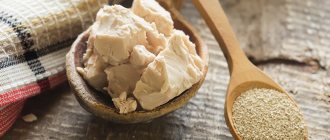How to store olive oil to preserve all its beneficial properties, taste and aroma? This question is asked by every housewife who uses the product to prepare culinary masterpieces. The tips collected in this article will help you figure it out.
The oil is rich in vitamins, antioxidants and healthy fats. It has an amazing taste and aroma. To preserve these properties of the product, it is important to properly organize storage and consume it before the expiration date.
We check the quality according to the label
The success of product storage is determined already at the purchase stage. When looking at the assortment of store shelves, you need to:
- study the label - check the expiration date, make sure that the manufacturer and packer of the product are in the same country;
- determine the usefulness - it is advisable to take a bottle of cold-pressed oil, since such a product contains the maximum amount of useful substances;
- pay attention to the container - it is important that the container in which the oil is sold is made of thick, dark glass; you can also purchase the product in a tin container.
The most valued oil is labeled “Extra virgin” from Greece, Italy, Tunisia, Spain, and Cyprus. This mark indicates the high quality of the product.
Tips for choosing a product
To use olive oil without risk, take care of proper storage. But you still need to choose a product.
When purchasing, pay attention to:
- Date of manufacture (indicated on the label). It is advisable that the oil be no more than six months old from the date of the spill.
- Taru. Fake bottles are sold in plastic bottles.
- Sealing method. It is recommended to choose a container with a screw-on lid rather than one with a stopper.
- Volume. Large quantities of oil are more difficult to keep fresh.
Do not purchase a product whose guaranteed shelf life has expired.
The purpose of the product is taken into account. For frying, use refined one - it does not burn and does not foam. Pure, unprocessed dressing is added to salads.
Attention! Oil color is not a criterion for determining quality. The yellow substance has a greenish or brownish tint. The color of the olive is influenced by the variety of olives, the ripeness of the fruit, the method of processing, and the place of growth.
How to store olive oil: place, container, protection
You need to store unrefined olive oil by following three rules.
Choosing the “right” container
When choosing a container for storing a product, there are four points to consider.
- Material. The container must be glass, tin or porcelain. You cannot store the product in a copper, iron or plastic bottle: the substances contained in the oil can enter into a chemical reaction with these materials and turn into carcinogens.
- Tightness. The container should be equipped with a tight-fitting lid, this will minimize the reaction of the product with oxygen.
- Narrow neck. In a bottle with a narrow neck, the oil has less contact with air when the cap is opened.
- Lightproof. If you store olive oil in a tin or darkened glass container, the product will be reliably protected from the harmful effects of ultraviolet rays.
Olive oil is usually sold in a container suitable for storing it. However, if you don't have one, you can wrap a clear glass bottle in foil.
Keep it cool and dark
Storing olive oil in the refrigerator leads to the formation of a white sediment, deteriorating the benefits and taste of the product. It is better to place the bottle with “liquid gold” in a kitchen cabinet with opaque doors: such a location will provide the desired temperature and protect it from sunlight. When choosing a cabinet, you need to make sure that it is located as far as possible from the stove.
If the oil has thickened, just remove the container from the refrigerator: at room temperature, the sediment will disappear after a few hours. But the taste will be spoiled.
We pour little by little
To protect the product from premature spoilage for a long time, wise housewives protect it from frequent interaction with oxygen. There are three rules for storing opened olive oil.
- Transferring to another container. After purchasing olive oil, a small amount is poured into a small glass or porcelain bottle.
- Protection from light. A large container with the remaining product is wrapped in foil and placed in a dark kitchen cabinet.
- Replace as decreasing. They use oil from a small bottle, and when it runs out, add a new portion.
How to tell if the oil has gone bad
Olive fruits have a unique taste that is transmitted to the seasoning. Fresh oil is characterized by a light, pleasant bitterness. When a product spoils, the bitterness increases, becoming cloying. You can also feel it in the smell.
Fresh oil is characterized by a light, pleasant bitterness.
This seasoning is not suitable for salad dressings, but there is no need to pour out the oil.
There will be other uses for it.
- Mixed with crushed herbs, it is poured into molds, and ice cubes are used in skin care.
- The olive product is added to mask compositions.
- Used for home massages.
Attention! If more than a month has passed since opening the bottle of seasoning, but the oil has been stored correctly, it acquires the quality of sunflower oil. You can use it to fry meat, fish, and make dressings for hot dishes.
Product expiration date
In closed packaging, the product can be stored for up to two years in glass containers, and up to one year in tin containers. Experts note that nine months from the date of manufacture the product begins to lose its properties. You can still use it, but the healing power is already minimal.
The shelf life of olive oil after opening is no more than a month. After this time, “liquid gold” loses its taste and most of its beneficial properties. You can store opened olive oil in a glass or tin container for a little more than a month if the container is tightly sealed.
You should not buy a large bottle for future use: the required volume should be determined by the monthly needs of the family.
When buying, remember
As with any expensive product, less than conscientious producers may try to take advantage of olive products.
Olive oil is adulterated by adding to it:
- rapeseed oil;
- sunflower;
- soy;
- chlorophyll.
Don't buy an expensive product for an occasion or from a store that looks like a cheap diner. It can be purchased at a pharmacy, supermarket or specialty store.
Varieties and their use
- The best option is when the bottle is made of dark glass, which protects premium oil from light rays.
- Tin containers are acceptable, although the product that is poured into it is usually of lower quality. It is not recommended to store oil in an iron can after opening it. Tin, in contact with air, begins to oxidize, which affects the taste and quality of the product. It is better to immediately pour it into a glass container.
- No self-respecting manufacturer will bottle an expensive product into cheap plastic bottles. Usually a mixture of oils is stored in plastic. The contents may taste quite good, but their beneficial properties will be very doubtful.
Next, you should look at the expiration date indicated on the label. The numbers will tell you when the product is made and how long it can be used. It is advisable not to buy olive oil if it was pressed more than six months ago, but to look for something “younger”.
Tip of the day
Look for oils made and bottled in the same country.
How long can you optimally store after opening?
This dressing for various salads contains valuable substances that cannot be replaced by anything. If the oil is sealed and in its original packaging, then with proper storage all the vitamins and microelements in it are preserved for a long time. An open bottle's shelf life is sharply reduced - up to 30 days. It is advisable to use up this olive dressing within 1 month.
True, even after 3 months the oil will not deteriorate, it will simply change its taste, lose some of its beneficial substances, and the aroma will not be as intense.
Who is the product contraindicated for?
It is used as an independent means of therapy in various fields. To enhance the effect, combine with other types of oils. Despite the impressive list of beneficial properties, it has contraindications. Therefore, if they are present, you should stop using cumin oil.
List of contraindications:
- individual intolerance to components;
- taking medications that lower glucose levels;
- children under 6 years of age;
- low pressure;
- pregnancy;
- acute gastritis, ulcerative formations;
- bleeding;
- hemorrhagic diathesis;
- severe liver and kidney diseases;
- after organ transplantation.
In rare cases, the use of cumin seed oil is not recommended for purulent formations on the skin or wounds. When ingested, allergic reactions may occur in the form of dizziness, nausea, vomiting, swelling of the throat, lips, and face. It is not recommended to take the product internally in its pure form. Consumption of caraway oil is not compatible with alcohol.
Experts recommend purchasing cold-pressed cumin oil. The use of this technology in production contributes to maximum preservation of beneficial substances in the composition.
Share link:
Temperature
We are all accustomed to the fact that to prolong the freshness of food, it is necessary to store it in the refrigerator. Many people follow the same principle with olive oil - and make a mistake.
Low temperatures lead to the formation of a white precipitate that will disappear when heated. Also, the cooled product often becomes cloudy and changes color. Such metamorphoses negatively affect its taste and nutritional value. In this regard, storing it in the refrigerator, much less in the freezer, is not recommended.
Important!
The optimal temperature for storage is from +14°C to +18°C. Do not expose the product to frequent changes in temperature, otherwise it will quickly acquire an unpleasant bitterness.
Are there differences in time depending on production technology?
First of all, it should be noted that olive oil can be produced at a factory or at home (if you have a fruit-bearing olive tree).
Reference. To obtain 1 liter of the finished product at home, you will need 5 kg of olives.
There are 3 main types of oil produced.
- Unrefined (natural) . This is oil obtained after the first cold pressing without the use of heat treatment. It is the most saturated with useful substances, therefore the most expensive. Its shelf life in a closed container, subject to the recommended temperature conditions (+12+25), absence of direct sunlight and relative humidity up to 85%, reaches 12 months from the date of bottling.
- Purified . It is produced by refining natural olive oil. This is a second-press product. Its shelf life, if properly stored and transported, can vary from 1 to 2 years.
- Cake . It is made by undergoing temperature and chemical treatment (natural and refined are mixed). The shelf life of this product reaches 2 years.
Storage Secrets
As already mentioned, olive oil, or as it is also called, Provençal seasoning, is a perishable product. Therefore, after opening, it can be stored for no more than a month, and preferably three weeks. Subsequent storage will cause the beneficial properties and other qualities to deteriorate. Of course, a month is very little. Therefore, it is quite natural that every housewife has a desire to preserve the freshness of this product for as long a period of time as possible.
Oil is not wine, and its quality only deteriorates over the years. Moreover, this point is relevant for even the most expensive Olea Europaea. Buy something that was bottled a maximum of 6 months ago. After purchasing, immediately try such a valuable product. It has a slight bitterness.
Please note the following points:
- Air and light are the main “enemies” of such oil. Air and sunlight promote rapid oxidation, causing the oil to taste rancid.
- The product can only be stored at cool temperatures.
- In real butter, after being in cool conditions, white flakes form - solid fats that have thickened. If you leave the product with flakes at room temperature for a while, the flakes will disappear.
- This oil cannot be frozen; at low temperatures it loses its beneficial properties and aroma. And it cannot be used again after frying.
- A month after opening, Odivka oil can be used instead of regular sunflower oil.
It is equally important to choose the right container and storage space.
Linseed oil
This fatty vegetable product, made from flax seeds, is used for salad dressing and added to ready-made dishes. It should not be heated, as in this case it loses all its beneficial properties, so dishes should not be cooked with this oil.
The shelf life in unopened packaging ranges from 3 months to 1 year; opened packaging lasts 4-6 weeks, depending on where the product is stored. To use it for as long as possible, the following rules should be followed:
- store the product in glass containers, not plastic ones;
- the glass of the bottle containing the liquid must be darkened;
- It is best to place the container in a closet and limit access to sunlight as much as possible;
- Flaxseed oil retains its properties well in ceramic or porcelain containers;
- after opening, especially protect the product from exposure to light, since even after half an hour of exposure of this liquid under the sun, it can no longer be eaten;
- never heat the oil: in addition to the fact that high temperatures deprive it of its beneficial properties, it can ignite if heated for a long time.
Always monitor the quality of food. To be sure of the quality of the product, when opening or pouring, mark the number directly on the package or bottle. Then you will not miss the expiration date and will only use a healthy and tasty product!
Main varieties
Don't rush to buy a product that has a lower price tag. Read the label carefully. Depending on the degree of purification, three main varieties can be distinguished.
- Extra Virgin and Virgin. This is an unfiltered premium oil produced by cold pressing. That is, by simply pressing the fruit. A kind of fresh olive juice. It has a rich aroma and tart taste with a mild bitterness. The best use is in salads and sauces. Frying on it is wasteful and unhealthy, because it quickly begins to “burn” and release carcinogens.
- Refined. Refined oil. After filtration, the product loses its pronounced aroma and taste, as well as some of the fat. But when frying it does not smoke and is cheaper. But keep in mind: it is not recommended to fry it again; it is better to pour out the remaining oil immediately after cooking.
- Pomace. This oil is extracted from the pressings left over from the production of Virgin Oil. This is where heat treatment of the cake and various reagents come into play. Accordingly, such a product does not have the nutritional value that we expect from “liquid gold”. You can fry it (you can’t heat it twice!), but it’s not suitable for salads and dressings at all: no taste, no aroma, no benefit. Plus - low price.
There are also various mixtures of these varieties. In this case, the bottle will be marked Mix or the name will contain the words: Pure Olive Oil (unrefined plus purified), Olive Oil (unrefined plus purified, but more filtered), Olive-pomace Oil (refined plus pomace oil).
Composition and benefits
Olive juice consists of 99.8% fats, of which only 14.4% are saturated, and the rest are polyunsaturated (Omega-3 and Omega-6) and monounsaturated (Omega-9), that is, those that bring us exclusively benefit. Which omega-3s are better, read here. There are no harmful trans fats at all. It also contains vitamins (A, D, E, K, group B) and antioxidants. The table describes in more detail the role of olive oil components.
Table - Composition and benefits of olive oil
| Substance | Benefit |
| Omega-6 (mainly linoleic acid) | — Anti-inflammatory effect; - lowering cholesterol; - strengthening of blood vessels; - normalization of blood sugar; — strengthening cartilage tissue; — slowing down the aging process of tissues; — improvement of brain activity; — reducing the risk of developing cancer |
| Omega-9 (mainly oleic acid) | — Improving the functioning of the heart and blood vessels; — maintaining blood glucose levels; — strengthening the immune system; - lowering cholesterol; — reducing the risk of developing cancer |
| Antioxidants (polyphenols) | — Normalization of blood pressure; - maintaining normal heart function; - protection against free radicals; — prevention of atherosclerosis; — reducing the risk of developing cancer; - strengthening cell membranes; - improving the regenerative ability of cells |
| Vitamin A | — Strengthening the immune system; - antioxidant effect; - participation in protein synthesis; — normalization of metabolic processes; - strengthening cell membranes; – protection of bone tissue from destruction |
| Vitamin E | — Decrease in blood sugar; - antioxidant effect; - prevention of Alzheimer's disease; — reducing the risk of developing cancer; — normalization of hormonal levels; — improvement of skin turgor; - strengthening the walls of blood vessels; - maintaining immune functions |
| Vitamin D | — Improving calcium absorption; — stimulation of cell growth and regeneration; - protection of nerve fibers; — synthesis of immune cells; - normalization of blood glucose levels |
| Vitamin K | — Growth and strengthening of bone tissue; - maintaining liver function; - increased blood clotting; – neutralization of poisons and toxins |
| Choline (vitamin B4) | — Strengthening cell membranes; — normalization of fat metabolism; - protection of nerve fibers; — stimulation of cell regeneration; — maintaining liver and kidney functions; — prevention of atherosclerosis; — normalization of blood sugar levels; - improvement of brain activity |
Olive oil has a choleretic effect. If gallstone disease and other gastrointestinal pathologies are in the acute stage, consult your doctor. You may be better off stopping using the product.
Can the product be used after the permissible period of use has expired?
It is important to understand whether the product can be used after the expiration date, as this may be harmful to health. You should not consume olive oil that has expired , especially if you notice signs of spoilage. Even if you overboil it, such a product can still be harmful to your health.
Attention ! Ingestion of rancid, expired olive oil has unpleasant consequences for your body: it can cause nausea, vomiting, and diarrhea.
You will notice the delay immediately:
- the product will change its taste, become unpleasant, rancid in taste;
- When heated, the sediment of such oil does not dissolve.
Expired olive oil can be used in various areas, but not in cooking:
- You can use it to make handmade soap and use expired olive oil for the benefit of your skin.
- Cover wooden and metal products with it.
- Lubricate door hinges.
- Add to hair dye, creams, and other cosmetics.
- Mixed with essential clove oil, it is an excellent environmentally friendly remedy that will protect you and your entire family from mosquitoes in nature.
High-quality olive oil cannot be cheap. A low price indicates that an expensive product has been diluted with cheaper vegetable oils. Fresh olive oil has many health benefits. The popularity of this product, due to its taste and beneficial properties, is steadily growing. But be careful when purchasing: unfortunately, a very large number of counterfeits of this olive oil have appeared.











